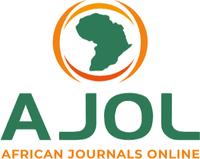Radiation hazard assessment of natural radionuclides in the soil samples from the quarry area of Shira, Bauchi State, Nigeria.
DOI:
https://doi.org/10.56892/bima.v8i2.692Keywords:
Quarry, Radionuclides, Gamma rays, Geological formations, Hazard parameters.Abstract
The mining activities significantly enhance the naturally occurring radionuclides (NORMs) above the background level, which is harmful to human health and the ecosystem. The specific activities of 238U, 232Th and 40K of the soil samples collected in the quarry area were analyzed by gamma spectrometer. The concentrations of the radionuclides varies from to with a mean value of for 226R, to of with a mean value of for 232Th and to with a mean value of , which is below the recommended worldwide limit of 35, 30 and 400 , respectively. The potential health risks associated with radionuclides were determined. The result for Radium equivalent activity (Raeq) is 184.8 , external hazard index (Hex) is 0.5, annual effective dose (Eaed) is 0.3 mSv y-1 and excess lifetime cancer risk (ELCR) is , respectively. According to (UNSCEAR, 2000), the computed radiation hazard indices are below the allowable limits. Therefore, there is no serious risk to the population from radiation exposure due to the quarry work in the study area.





